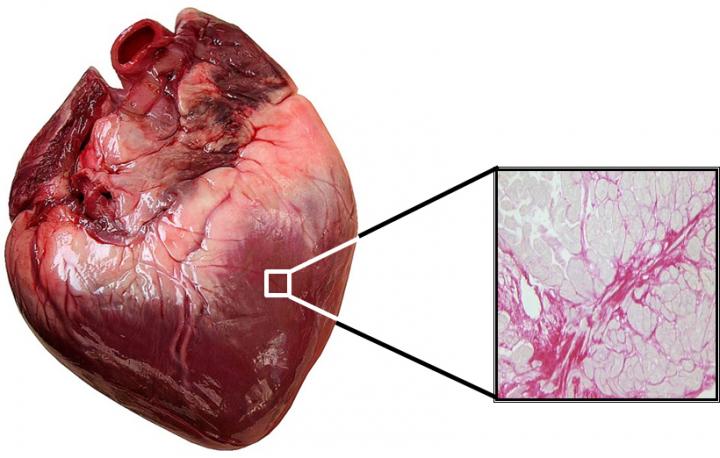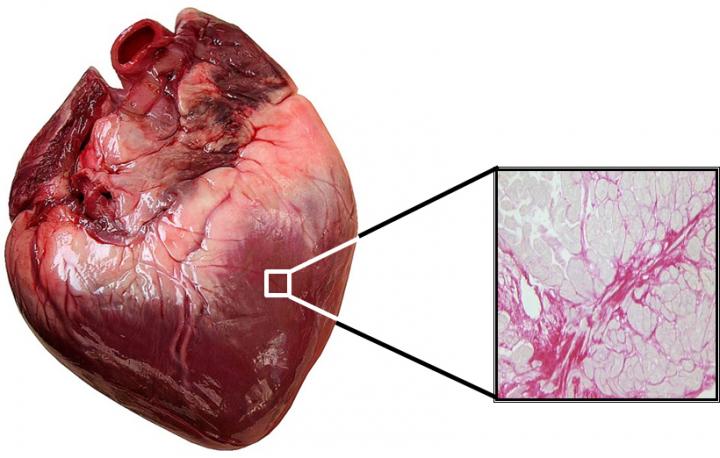
Credit: Made by CIMA researchers
An international multicenter study has identified a molecule that will open the door to personalized treatment for heart failure. The results of this work, with the participation of researchers from Indiana University and Stanford University (US), the Charité University Medicine Berlin (Germany) and the University of Navarra (Spain), have been published in the latest issue of the scientific journal Nature Communications.
Heart Failure (HF) is characterized by a malfunction of the heart in supplying the body with enough blood for the proper working of its organs. In Spain over 3% of the adult population presents with HF, but this figure is on the rise due to the ageing population and the increase in the prevalence of heart diseases producing HF. "This is a great challenge for society: it is the leading reason for the hospital admission of over-65's, the cause of 3% of all admissions and absorbs 2.5% of the global healthcare budget", explained Dr. Javier Díez, director of the Cardiovascular Disease Program at the Center for Applied Medical Research (CIMA) and director for Research and Innovation of the Cardiology and Cardiac Surgery Department of the Clínica Universidad de Navarra, one of the authors of this work. The researcher points out that, "In view of this challenge, on the one hand existing healthcare resources must be optimized in order to reduce the number of new cases and improve the prognosis and quality of life of HF patients, and, on the other, to research the mechanisms that produce heart failure in order to develop treatments that are more effective and safe that the ones that exist at present".
In the article the researchers show that an excess of a molecule (lysyl oxidase-like 2) produces fibrosis of the cardiac muscle, which impedes its normal functioning and stimulates the development of HF. Moreover, the experimental studies confirm that the elimination of this excess repairs the fibrosis and alleviates the heart function, thus preventing the onset and progress of HF. "These results suggest that the lysyl oxidase-like 2 enzyme may be a target for the treatment of this disease", said Dr. Díez.
Pioneers in biomarker research
Once the activity of the enzyme has been described, the next step is to develop tests for a precise diagnosis of patients with heart disease who present an excess of this molecule in their hearts. These tests will be carried out at CIMA and the Clínica Universidad de Navarra by the BIOMARCS research group, a pioneering team in the research of cardiac biomarkers for HF patients.
Additionally, drugs to inhibit this molecule for the personalized treatment of each patient will be developed. As Dr. Díez states, "This strategy may be particularly valuable in the 50% of heart failure cases for which there is no effective treatment at present. In these patients, the change in the performance of the heart is closely related to fibrosis of the cardiac muscle, and so the suppression of this enzyme is proposed as a very promising therapeutic alternative".
###
Caption: Scientists of the BIOMARCS research group from the University of Navarra
Image: Microscopic image of the myocardium in the ventricular wall of a patient with heart failure. Red tissue corresponds to fibrosis of the heart muscle.
Article reference: Targeting LOXL2 for cardiac interstitial fibrosis and heart failure treatment. Nature Communications. Doi: 10.1038/ncomms13710.
Media Contact
Miriam Salcedo
[email protected]
http://www.unav.edu/





